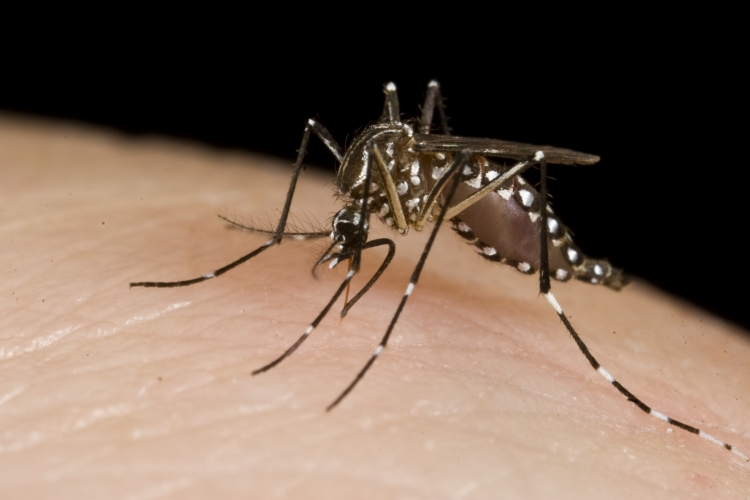Global Health Emergency Sparks Panic

With the memory of the Ebola virus and it's devastating impact on the world still fresh in the public's mind, the mosquito-born virus, labeled the Zika virus, is being treated with every precaution. However, many wonder if this worldwide 'Zika hysteria' is, at this point, unwarranted.
Before we can understand how best to react to the Zika virus, we first need to become more acquainted with the virus itself.
So, what exactly is the Zika virus?
According to the Centers for Disease Control and Prevention, the Zika virus was first discovered in 1947 in the Zika forest of Uganda. Since then, outbreaks of the virus have been contained to tropical Africa, Southeast Asia, and the Pacific Islands. However, on February 1, 2016 the first documented case of the Zika virus in Brazil was confirmed. Now, only one month later, it is estimated that 1.5 million people have been infected with the virus in Brazil alone.
How does one become infected?
The Zika virus is transmitted through the bite of an infected mosquito, the same kind known to also transmit diseases such as Yellow and Dengue Fever. However, recent studies have begun to uncover the possibility that the Zika virus may also be sexually transmitted. Once a male becomes infected by a mosquito, he is able to then infect his sexual partners as the virus can stay alive in semen longer than in blood. Thus, an infected male is able to infect others even after he himself has stopped showing symptoms or, even if he never showed them to begin with.
What are the symptoms?
Normally the Zika virus holds very mild symptoms for those infected. These symptoms usually include fever, joint pain, rash, and eye irritation, and the symptoms, if they appear at all, typically lasting several days. However, what has the global health experts worried is a relatively new correlation appearing between the Zika virus and what is known as microcephaly.
The photo below depicts one baby with microcephaly and the other without:
Image Credit: WikimediaCommons/Centers for Disease Control and PreventionMicrocephaly is a condition in which a baby is born with an extremely small head due to lack of brain growth while in utero. This diminished brain growth is linked to numerous resulting issues during the infants life such as seizures, hearing loss, intellectual disabilities, vision problems, and even death. While the link between a pregnant mother becoming infected with the Zika virus and giving birth to a baby with microcephaly is not yet confirmed, it is quickly becoming stronger as over 4,000 infants have been born with the disorder in Brazil since the outbreak of the Zika virus.
Who is at risk?
Image Credit: Centers for Disease Control and Prevention
As of this moment the Zika virus is contained mainly to the Americas, with a few cases reported in Africa and the Pacific Islands. However, health officials expect the virus to spread, especially as the 2016 Olympic Games are set to be held in Brazil this upcoming summer. To help combat the spread of the virus, U.S. President Barrack Obama has requested 1.8 billion dollars. While the games are set to continue despite the virus, officials are warning pregnant or soon to be pregnant women to stay away due to the risk of possible infection. However, men traveling to infected regions should keep in mind that if they become infected they can then infect others even after they have returned home. With this in mind, it is recommended that men either use a condom or abstain from sex for at least 28 days after returning from an infected region.
Currently it seems that women who are pregnant or who may become pregnant are most at risk when it comes to the Zika virus. However, as the virus continues to undergo further study, researchers have discovered another possible link between the Zika virus and what is known as Guillain-Barre Syndrome. The syndrome is a neurological disorder which occurs when the immune system attacks the nervous system, resulting in temporary but sometimes severe paralysis in people of any age or gender. With this new discovery it may be that no one is out of the woods when it comes to the dangers of the Zika virus.
What does this mean for you?
As students living in Paris, you can expect to be fairly safe from the Zika virus and its resulting complications, as officials doubt the virus will spread to Europe due to the cold temperatures being inhabitable to the mosquitos who carry the disease. However, if you plan on traveling to afflicted regions you are putting yourself at risk of becoming infected or infecting others when you return home. As there are still many unknowns when it comes to the Zika virus it is best to treat it with caution, and until researchers know more about the possible effects the virus can have, it is wise to avoid infected regions. For a list of these regions click here.
For further information click on the video below:
Image Credit: Youtube/BuzzfeedBlue









